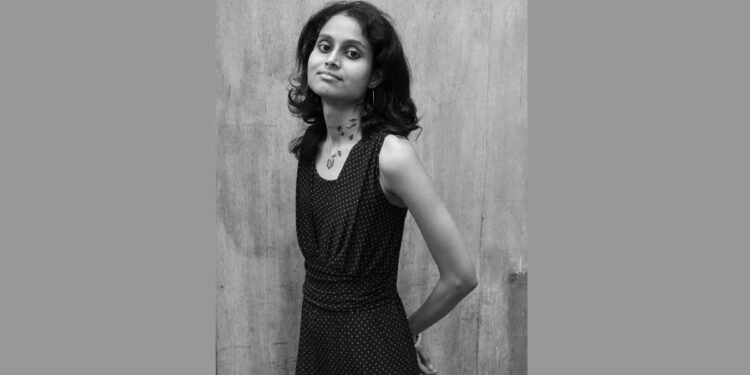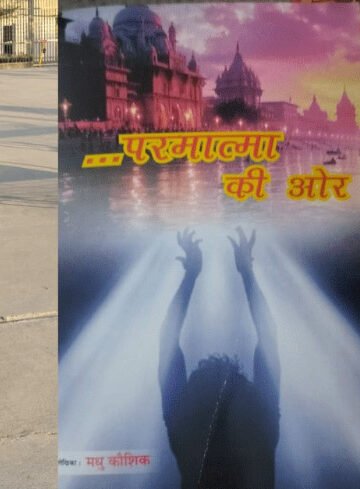In this article, Aashisha Chakraborty chronicles her experiences as a salesgirl, and shares a bit of her perspective on how the corporate ecosystem inadvertently offers a platform for budding authors and influencers. Her witty portrayal of her first-hand experiences helps give us a deeper understanding of this connection between the corporate ecosystem an authorship. It talks about how oftentimes the work-load or work-culture forces the writer or artist to be revealed, which forms the basis of this corporate-creative connection.
Society has been the bedrock of most thought and civilization, historically inspiring literature and movement around it. As the corporate society today has grown magnificently, lending itself to theories and debates of capitalism, consumerism and social remodeling, we find a lot of thought processes developing around this particular ecosystem, perhaps because work has become a crucial part of our lives or that success stories have emerged from the moral fibre and persistence of individuals who have pursued their dreams and created masterpieces in the form of organizations, products and processes. Among all this, we often detect shoots of discontent emanating in spurts and bursts when the darker side of all the glitz and glam are exposed. The inner writer in us then prepares the negative image to be brought to sharp light with the might of their pen/keyboard.
Perhaps it’s the whole data overload that upturns the balance for these closet writers and artists, and a little tinder sparks them straight to cloud nine, ten, eleven?
On a personal note, I often suffer an existential crisis during the course of a workday; questioning everything from the meetings on the future of a product to the phone call from a stray customer who got my number from heaven-only-knows-where and I wonder about the big picture that I could probably visualize from the surface of the moon while fetishizing on the rings of Saturn. Maybe that’s how blanketed in the Chennai heat, my creative cells boiled over to create stories from the back of a salesman’s bike or from the edge of my cold air-conditioned seat on a floor devoid of any females. Some details become stickers in your consciousness and keep growing till they can’t grow anymore, till they fill your mind and being, and become desperate to come out of you. That’s kind of how my book baby was born out of my humbling ground experiences as a sales girl in Chennai.
Initially, it came as a shock because one doesn’t expect to get into a role like this after an MBA or perhaps that was just the entitled elitist in me talking but the abrupt switch from Kotler’s 4Ps of marketing to a Tamil-speaking retailer haranguing you for the mistakes of the regional manager could be quite a revelation. As were the personal random questions directed at me by people because they were curious and skeptical about a young manager leading their team; why would a fresh graduate get to lead a bunch of decades-experienced-old-timers? Frankly, I didn’t know the answer to that question so I preferred to stay on my trademark plastic quiet smile while most of the males around would ignore me unless they were compelled to take a file or something, hence forced to look me straight in the eye. The skewed sex ratio in some professions is a real number. Just go to any sales team and you will have your proof. And it is not astonishing considering that less than 20% of board seats in Indian organizations are occupied by women, as per Deloitte’s research (well, talking without data is breaching corporate etiquette and I can’t really afford to be anecdotal on gender issues, can I?) Here is some more empirical data…you wouldn’t be very surprised to know that women only own 20% of all enterprises in India. Even if you go to the US, you will find only 30% of sales positions occupied by this gender.
Phew! When I started writing ‘Mis(s)adventures of a Salesgirl’, I meant to chronicle the journey of a young woman who through sheer grit, humor and clear intent, managed to win the milestones she had set for herself, wading through multiple cultures, situations and people, all through the lens of a sales intern. But on my writing and publishing journey, I realized that there were bigger issues underlining the story, some of them being an ideal way of working that a new professional carries in her head and the stark contrast it makes with the actual scene but more importantly, the treatment meted out to women professionals especially in sales, intended or unintended, and the whole bit where women are mostly classed into non-revenue generating activities, soft roles as many call them.
Like a fully functioning ecosystem, the corporate domain has collected a myriad of stories and experiences, igniting sparks in people like me who have penned stories like the above. The hope is that newer horizons and open skies welcome the new generation of professionals and we all find light in the days to come.













